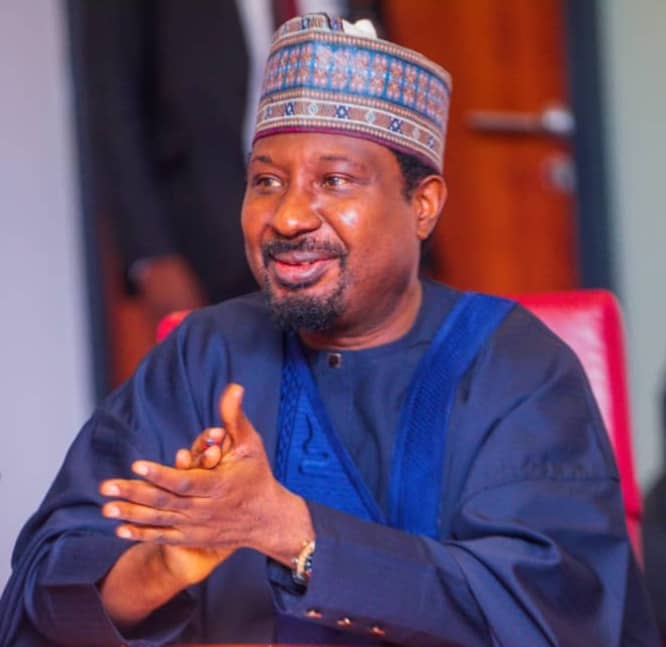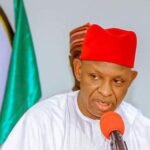For northern politicians, accusations of acting against “northern interest” can be politically perilous. This is the charge the Deputy President of the Senate, Senator Barau Jibrin, has been battling since the controversy over the tax reform bills caused an uproar in the Senate.
Last Tuesday, Senator Barau, presiding over the Senate plenary in the absence of Senate President Godswill Akpabio, faced one of the most challenging moments of his political career. He clashed with Senator Ali Ndume (APC, Borno) during debates on the bills and permitted the presidential committee on tax reform to address the senators—a decision that has since sparked a storm of criticism.
The backlash, particularly on social media, has been intense. Critics accused the Kano North senator of betraying northern interests by allegedly supporting the controversial bills. He was also the focus of Friday sermons in some mosques, with a cleric in a widely shared video calling for divine judgement against him and other supporters of the bills.
A satirical video by social media influencer Dan Bello further inflamed tensions, portraying Barau as complicit in advancing policies that would impoverish northern citizens. Originally posted on TikTok, the video amassed over 100,000 likes, 2,000 comments, and 10,000 shares. It also gained traction on X (formerly Twitter) and WhatsApp, where users widely shared it to accuse Barau of supporting the bills to curry favour with the presidency.
‘Defamation’: Court remands human rights lawyer Farotimi
PHOTOS: Shettima, Obasanjo, Atiku, Saraki grace Kwankwaso’s daughter’s wedding
While some analysts argued that Barau may be a victim of circumstance, others added that the widespread distrust of the Nigerian government and his party, the All Progressives Congress (APC), has made him an easy target. Many critics contended that Barau should have found a way of excusing himself from presiding over the plenary last Tuesday or should have opposed the bills outright, including denying the presidential committee a platform to address lawmakers. Others, however, argued that as the presiding officer, Barau’s duty was to the Senate’s procedures, not regional sentiments.
Speculation about Barau’s political ambitions has also fuelled the controversy. Though he has not declared an intention to run for Kano State governor in 2027, some observers believe the incident has been politicised by rivals within the APC and the New Nigeria People’s Party (NNPP). These opponents are alleged to have amplified the narrative that Barau supports the bills, branding him as working against northern interests.
An X user, @Mk__maitama, highlighted this political dimension, accusing members of the NNPP’s Kwankwasiyya Movement—who have been among Barau’s harshest critics—of hypocrisy. He noted their silence when Hon. Abdulmumin Jibrin Kofa (NNPP, Kiru/Bebeji) openly championed the tax reform bills and granted interviews supporting them.
Some commentators also linked the relocation of Barau’s son’s wedding fatiha to Maryam Nasir Ado Bayero from Kano to Abuja to the public outrage.
However, the family of Alhaji Nasir Ado Bayero dismissed these claims, explaining that the change was to accommodate dignitaries from across Nigeria and abroad. In a statement, Alhaji Aminu Babba Dan Agundi, chairman of the organising committee, clarified that the relocation was a decision by the bride’s family and unrelated to the controversy.
Amid the uproar, prominent lawyer and social commentator, Bulama Bukarti, called for a fair assessment of Barau’s actions. “We need to be fair to him. Honestly, he hasn’t stated his position on this bill, whether in favour of or against it. People should calm down; the second reading is not the end of a law,” Bukarti said.
Barau also defended himself in an interview with the BBC Hausa, stating, “Nobody will come and do something that will cheat his people; nobody will do that.”
He explained that he allowed the presidential committee to address the Senate because further clarification on the bills was deemed necessary, as had been done in the House of Representatives.
“They [the committee] were invited, but some senators claimed they weren’t informed despite announcements on our platform. Nevertheless, the law allows us to proceed,” Barau said.
Addressing the social media backlash, he remarked, “Some people are already on standby to insult and defame others. They do this without understanding proper procedures. We politicise everything.”
In a show of support, a coalition of youth groups from northern states held a solidarity rally at the National Assembly on Tuesday, hailing Barau as the “Sardauna of our era.” A former president of the National Association of Nigerian Students (NANS), Comrade Tijjani Kabiru Mohammed, reiterated that Barau had neither endorsed nor opposed the tax reform bills but instead advocated for public sensitisation.
Observers believed the rally demonstrated that while some clerics and youths have criticised Barau, others stand firmly with him. They also opined that the protest underscored the political undertones of the development.
They suggested that this support might explain why Barau presided over Wednesday’s plenary, where the Senate announced the decision to step down legislative action on the bills.

 Join Daily Trust WhatsApp Community For Quick Access To News and Happenings Around You.
Join Daily Trust WhatsApp Community For Quick Access To News and Happenings Around You.


